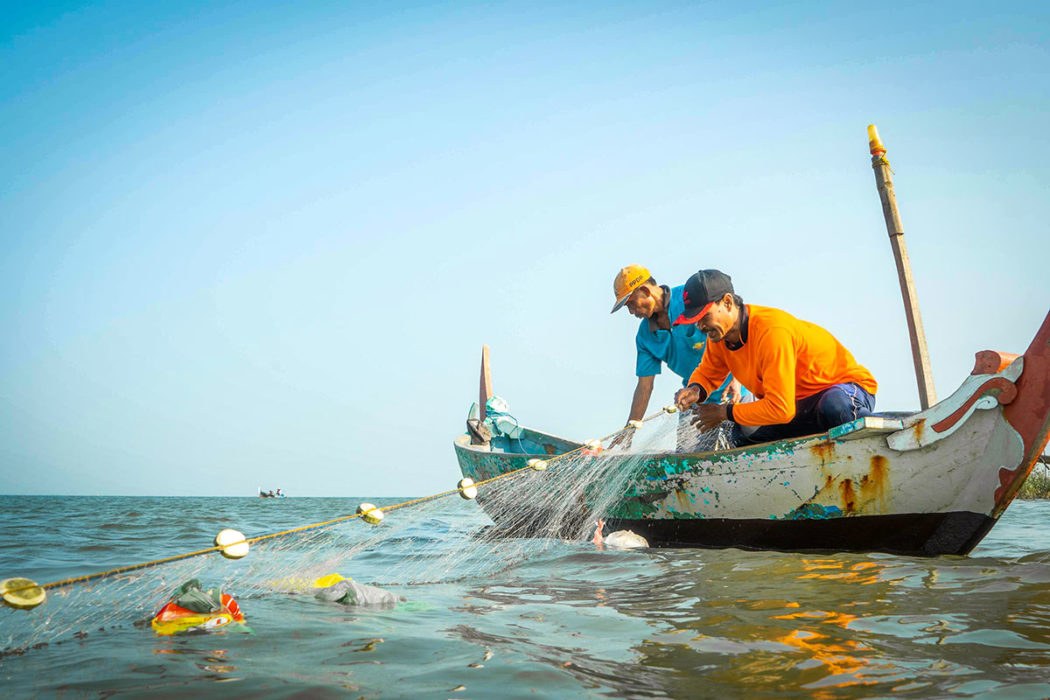Rolling Deep with GOT BAG Founder Benjamin Mandos
There aren’t a ton of businesses that we fall in love with at first sight, a few, but not a ton. One of those very few happens to be GOT BAG. Last year you might have seen our deep dive, pun very intended, into how these ocean-plastic, and not-bad-looking, bags are made. If not, you can read more on that here. This time it seemed natural to learn a little bit more about the humans behind the idea. Whalebone treaded over to founder Benjamin Mandos to take a look over the bow at what makes GOT BAG different, how it came to life, and what the word sustainable means to him.
Ocean plastic is floating on the oceans and forming into ever-growing garbage carpets that threaten the ecosystem.
Where did your love for the ocean start?
My father gave me his passion and love for sailing and the sea at an early age. Even before I could walk, he took me sailing. As a little boy, I remember above all the feeling of freedom and a sense of adventure. But of course also the fear of the first real storm on the way from Denmark to Norway. From today’s point of view, my parents gave me the closeness to nature, which still shapes me today. So it’s no coincidence that I associate that with my work now.
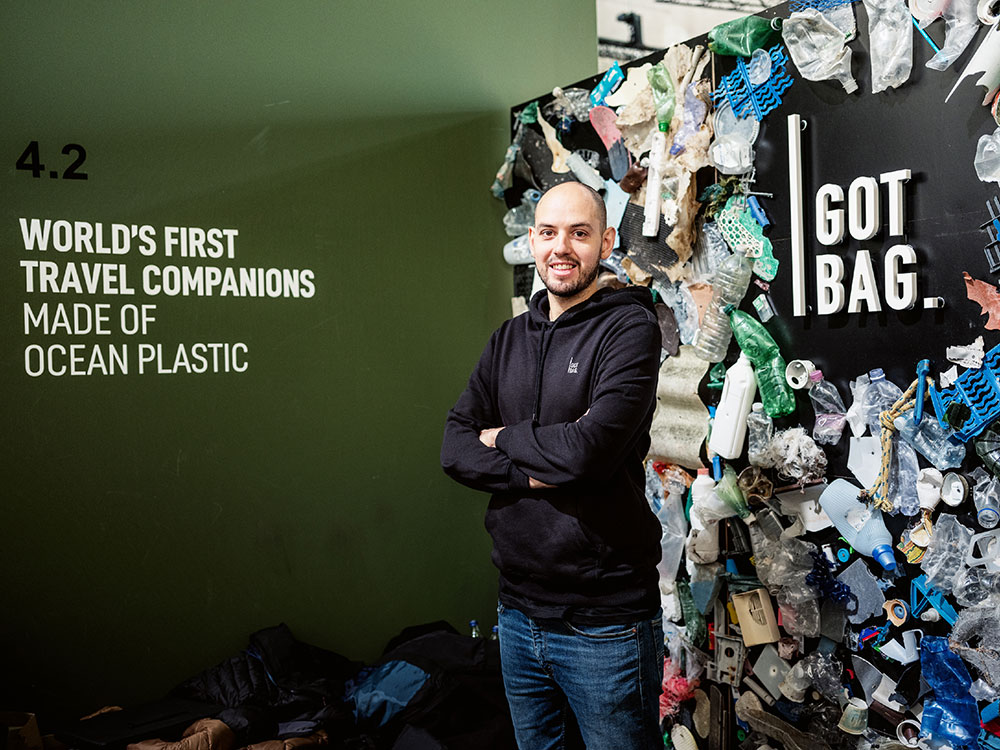
A lot of humans out there assume that plastic is plastic, but there seems to be a lack of understanding of what the difference is between ocean plastic and ocean-bound plastic. Can you explain the differences and the implications around both?
According to GOT BAG’s understanding, ocean plastic is floating on the oceans and forming into ever-growing garbage carpets that threaten the ecosystem. Collecting, sorting, and recycling it is usually quite costly, as ships are needed to collect it and it is often already severely degraded by saltwater and weather.
In contrast, ocean-bound plastic is plastic waste located within 50 km of the coast—in places where waste management is non-existent or very inefficient. Because ocean-bound plastic also runs the risk of being released into the sea by winds or rain in the long term, the team understands that it is elementally important and relatively easy to rid beaches and areas near the ocean of ocean-bound plastic.
However, this approach does not get to the root of the problem of plastic trash floating in the ocean, which is why GOT BAG has made it its mission to actively salvage ocean plastic. With the GOT BAGs, the team actively tackles plastic already or still floating in the ocean—by having a network of fishermen collect it as bycatch near the coast. Hard-to-reach ocean plastic floating on trash carpets is to be used in the long term to generate data for research purposes and to understand more precisely to what extent it can be recycled.
For me, it’s the word sustainability itself. The term is often used without any further concretization. And so, for me, it is losing more and more of its meaning.
How was GOT BAG conceived and the story behind how you brought it to life?
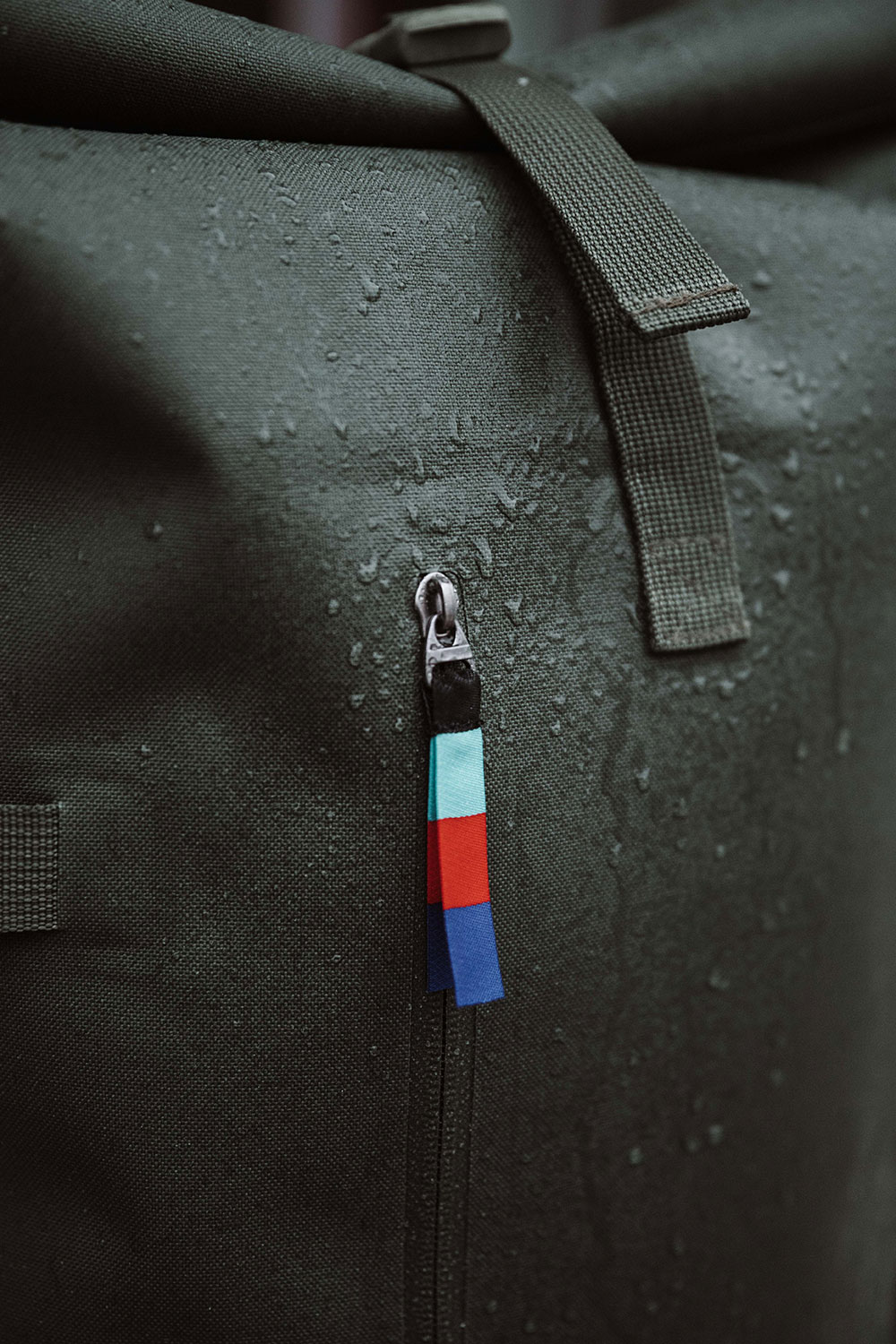
It all started with a conversation during a vacation together. I was telling my school friend Roman about the devastating impressions I had gathered in Thailand. It was clear to me: “Every year, more than 13 million tons of plastic end up in our oceans. Plastic waste in the ocean and on beaches, climate change and overfishing are already affecting the oceans and changing habitats. Seabirds, whales, and other marine animals are dying because they have plastic in their stomachs. This has to stop.”
Roman and I, both water sports enthusiasts who have shared a closeness and love of the sea since early childhood, decided, “Now is the time to act.” With the idea of creating something new from plastic waste from the sea, we developed the world’s first backpacks made from ocean plastic and founded the company GOT BAG in Germany in 2016.
After developing the first prototype of the GOT BAG ROLLTOP backpack within just under two years, we started selling the first backpacks at the end of 2018.
What are some words in the sustainability industry that sound an alarm when you hear them and what can those terms really mean?
For me, it’s the word sustainability itself. The term is often used without any further concretization. And so, for me, it is losing more and more of its meaning. If a company is sustainable, what exactly is being done? What is being saved? What differentiates it from other companies? It’s important that the term is not used in a blanket way, but is made more concrete. We also want to achieve this, for example, by showing our clean-up activities in a transparent way. That’s why we’re working with “Cleanhub”, which documents the performance of the clean-up program in Indonesia, in order to make the amount of recovered plastic transparent and to be able to offer other companies the opportunity to offset their plastic consumption through an offset cooperation with GOT BAG. We want to disclose the social and environmental impact of their business activities in a holistic way to show that ecology, economy and social behavior do not have to be conflicting goals at all. To this end, GOT BAG—following the example of other companies such as Patagonia—is striving for comprehensive certification as a B Corporation of the B Lab network, which are committed in their statutes to creating social added value and to ecological sustainability. Similarly, PLAN A aims to record, reduce and ultimately offset GOT BAG’s entire carbon footprint. A jointly developed certification program is already being tested with TÜV, which confirms the proportion of recycled materials in the end products.
Can you explain the process behind the ethical sourcing behind the materials that create GOT BAG?
GOT BAG was founded with the mission of reducing the amount of waste in the oceans and recycling valuable raw materials that would be lost without a closed-loop system. The founders wanted—and want—to set an example with their work to bring the issue of “waste problems” more into the public eye and to sensitize people to a more conscious use of natural resources.
GOT BAG production meets social, ecological and economic criteria of sustainable management. Resources are conserved without compromising on the quality of everyday and travel companions. They are high-quality and durable—and also minimalist and timeless, with a design that outlasts the fast-moving “fast fashion” industry. The repair service offered can further extend the life of the products.
With their Code of Conduct, those responsible at GOT BAG commit themselves to fair treatment and payment of all employees in the value chain: fair and safe working conditions, fair wages and equal treatment of all stakeholders are the maxims of their actions. GOT BAG understands this to mean an income that not only covers basic needs and irregular, necessary expenses (equipment purchases, medical bills,…), but also guarantees freely available financial resources beyond that. For the team, safe working conditions mean that all those involved in the value chain are not exposed to any health risks—in concrete terms, this means, among other things, that they have regulated working hours and are equipped with protective clothing if required. Machines are secured, production is ergonomically optimized and protected against fires.
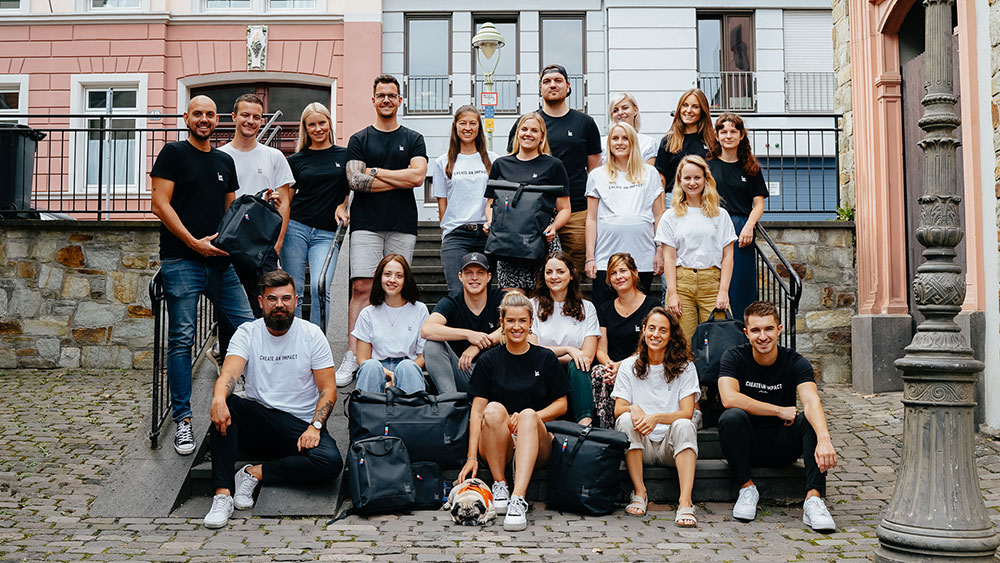
In addition, GOT BAG in Indonesia supports the development of a waste infrastructure in rural areas and strengthens the social position of women by creating jobs explicitly for women: In the industrially weak coastal region in Demak, where GOT BAG has set up its first clean-up program, people live off of mainly from fishing and to a lesser extent from agriculture. Most of the work is done by men; women mostly sell the goods at the markets. Many take care of the household exclusively. For the GOT BAG garbage sorting in the warehouse, the team employs only women. However, two groups of women also provide support for the collection of marine plastic—primarily by encouraging their husbands to collect the garbage and by taking on the administrative work and contact with the GOT BAG team, but also by actively recruiting other collectors.
The goal of all entrepreneurial activity is to address the problem of pollution and littering of the oceans in a holistic manner. For this reason, the GOT BAG team does not limit its activities on site in Indonesia to cleaning and processing PET into yarns. Rather, the other types of plastic recovered by fishermen are also fed into suitable recycling solutions. Here, GOT BAG is permanently working with research partners on new and up-to-date solutions. The fishermen in the Demak region on the Indonesian island of Java have meanwhile become important multipliers for educating the local population. They communicate their knowledge about plastic waste and recycling and achieve a higher environmental awareness and increased environmental protection in their environment. In this way, they support the GOT BAG team’s desire for people internationally to become involved in sustainable business practices. In addition, GOT BAG organizes workshops that, complementing the educational work, have in the meantime increased the pressure on the authorities to find solutions for a sustainable waste system. The concept is working: In the meantime, those responsible at GOT BAG are in close exchange with the government, which supports the work of the Mainzers and works with them to find long-term solutions to preserve intact ecosystems.
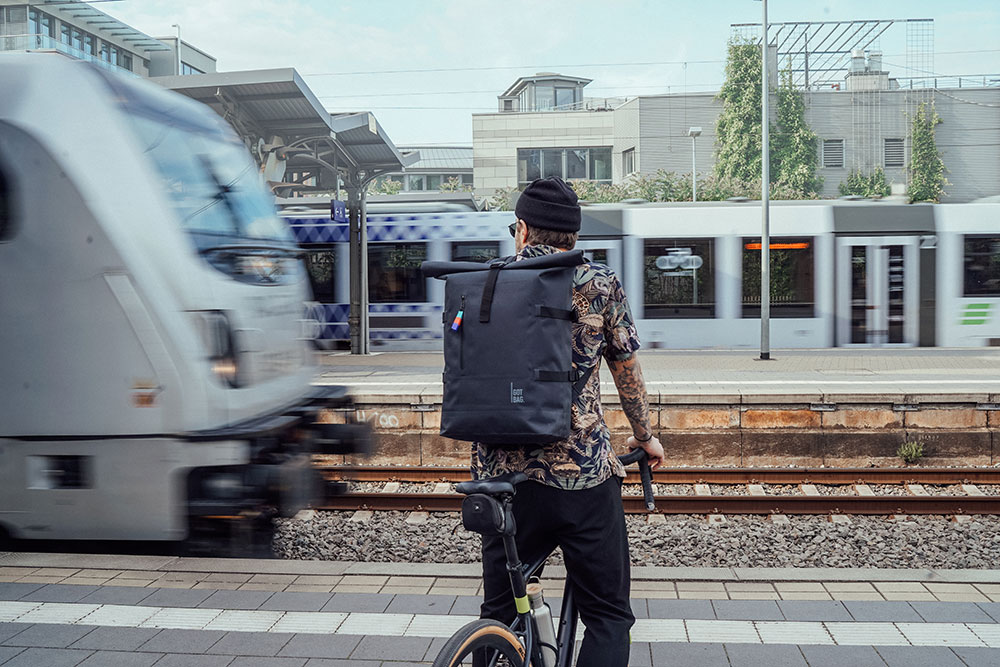
A small difference anyone can make?
Awareness. It is extremely important to be aware of the problem and to deal with it. This has a concrete impact, for example, on more conscious purchasing decisions.
If you were suddenly granted the power to breathe underwater and talk with animals, what’s the first animal you’d like to speak with and why?
All types of whales. They are simply majesties of the sea. They grow very old and travel incredibly long distances in their lives, seeing so much of the marine world that is still hidden from us.

